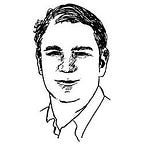Calling All Polymaths
Have you ever heard someone say they want to be a polymath? Have you ever heard anyone ask, how do I become a polymath? I haven’t. The word comes from the Greek polymathes or having learned much. A polymath is a person whose expertise spans a significant number of different subject areas. When we think of polymaths we tend to think of dead scientists from another era like Aristotle and Leonardo da Vinci. Rarely do we apply the moniker in modern times. We need more polymaths. We need a generation of youth who want to be polymaths when they grow up.
It’s easy to wrap our minds around the idea of a polymath in the context of ancient eras long gone. The entire body of knowledge on earth was accessible to an elite few. Those with an exceptional mind, privileged access, and the freedom to focus on interdisciplinary study, could become polymaths. In 384–322 BC Aristotle studied under Plato in ancient Greece. His writings spanned many subjects including physics, metaphysics, poetry, theatre, music, logic, rhetoric, politics, government, ethics, biology and zoology. In the late 15th and early 16th century Leonardo da Vinci was a prototype of the universal genius or Renaissance man. He was a painter, sculptor, engineer, astronomer, anatomist, biologist, geologist, physicist, architect, philosopher and humanist. Where have all the polymaths gone?
